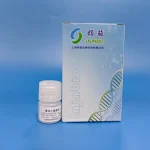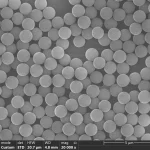
Relative Analysis of the Application of Polystyrene Microspheres and Polystyrene Carboxyl Microspheres in Biotechnology – Focusing on Nucleic Acid Extraction.
(LNJNbio Polystyrene Microspheres)
In the area of modern biotechnology, microsphere products are commonly used in the extraction and filtration of DNA and RNA because of their high specific surface, good chemical stability and functionalized surface residential properties. Among them, polystyrene (PS) microspheres and their acquired polystyrene carboxyl (CPS) microspheres are among the two most commonly examined and used materials. This write-up is offered with technical support and data analysis by Shanghai Lingjun Biotechnology Co., Ltd., aiming to methodically compare the efficiency distinctions of these two kinds of materials in the process of nucleic acid extraction, covering crucial signs such as their physicochemical residential or commercial properties, surface adjustment ability, binding performance and recuperation rate, and illustrate their appropriate scenarios with experimental information.
Polystyrene microspheres are homogeneous polymer fragments polymerized from styrene monomers with excellent thermal stability and mechanical toughness. Its surface is a non-polar structure and normally does not have active functional teams. Therefore, when it is directly utilized for nucleic acid binding, it requires to rely upon electrostatic adsorption or hydrophobic activity for molecular fixation. Polystyrene carboxyl microspheres introduce carboxyl practical teams (– COOH) on the basis of PS microspheres, making their surface with the ability of additional chemical coupling. These carboxyl groups can be covalently bonded to nucleic acid probes, healthy proteins or other ligands with amino groups through activation systems such as EDC/NHS, thereby achieving more secure molecular fixation. Consequently, from an architectural point of view, CPS microspheres have much more advantages in functionalization capacity.
Nucleic acid removal usually consists of actions such as cell lysis, nucleic acid release, nucleic acid binding to strong phase service providers, cleaning to eliminate contaminations and eluting target nucleic acids. In this system, microspheres play a core duty as strong phase carriers. PS microspheres generally rely on electrostatic adsorption and hydrogen bonding to bind nucleic acids, and their binding efficiency is about 60 ~ 70%, yet the elution effectiveness is low, only 40 ~ 50%. In contrast, CPS microspheres can not only use electrostatic impacts but likewise achieve even more strong addiction with covalent bonding, reducing the loss of nucleic acids during the cleaning process. Its binding effectiveness can get to 85 ~ 95%, and the elution efficiency is also enhanced to 70 ~ 80%. Additionally, CPS microspheres are additionally considerably much better than PS microspheres in regards to anti-interference ability and reusability.
In order to validate the performance distinctions between both microspheres in actual operation, Shanghai Lingjun Biotechnology Co., Ltd. carried out RNA removal experiments. The speculative examples were stemmed from HEK293 cells. After pretreatment with common Tris-HCl barrier and proteinase K, 5 mg/mL PS and CPS microspheres were used for extraction. The results showed that the average RNA yield removed by PS microspheres was 85 ng/ Ī¼L, the A260/A280 ratio was 1.82, and the RIN value was 7.2, while the RNA return of CPS microspheres was boosted to 132 ng/ Ī¼L, the A260/A280 ratio was close to the excellent worth of 1.91, and the RIN value got to 8.1. Although the procedure time of CPS microspheres is a little longer (28 mins vs. 25 mins) and the expense is greater (28 yuan vs. 18 yuan/time), its removal top quality is substantially improved, and it is preferable for high-sensitivity discovery, such as qPCR and RNA-seq.
( SEM of LNJNbio Polystyrene Microspheres)
From the viewpoint of application situations, PS microspheres are suitable for massive screening jobs and initial enrichment with reduced needs for binding specificity because of their low cost and simple procedure. Nevertheless, their nucleic acid binding capacity is weak and quickly affected by salt ion concentration, making them inappropriate for long-lasting storage space or repeated usage. On the other hand, CPS microspheres appropriate for trace example removal as a result of their rich surface area functional groups, which assist in more functionalization and can be made use of to build magnetic grain detection sets and automated nucleic acid extraction platforms. Although its prep work procedure is reasonably complex and the price is relatively high, it shows more powerful versatility in scientific study and medical applications with stringent requirements on nucleic acid removal efficiency and purity.
With the fast growth of molecular diagnosis, genetics modifying, fluid biopsy and other areas, greater requirements are positioned on the efficiency, pureness and automation of nucleic acid removal. Polystyrene carboxyl microspheres are progressively changing traditional PS microspheres due to their outstanding binding efficiency and functionalizable attributes, ending up being the core choice of a brand-new generation of nucleic acid extraction products. Shanghai Lingjun Biotechnology Co., Ltd. is likewise continually enhancing the bit size circulation, surface area thickness and functionalization performance of CPS microspheres and establishing matching magnetic composite microsphere items to satisfy the needs of clinical medical diagnosis, clinical research organizations and industrial customers for high-quality nucleic acid extraction options.
Supplier
Our products are widely used in many fields, such as medical testing, genetic testing, university research, genetic breeding and more. We not only provide products but can also undertake OEM, ODM, and other needs. If you need dna extraction, please feel free to contact usĀ atĀ sales01@lingjunbio.com.
All articles and pictures are from the Internet. If there are any copyright issues, please contact us in time to delete.
Inquiry us


